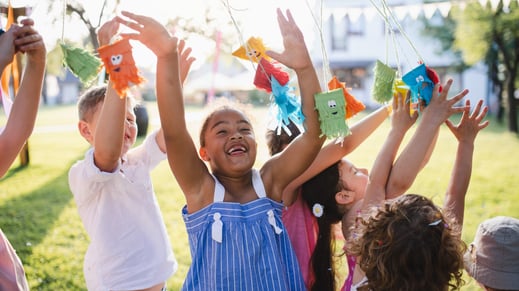
One of the initial directives from the COVID-19 pandemic was shelter-in-place. To fuel this approach, life as we knew it changed immediately. Many of the venues that were a part of our normal lives were no longer available to us. We could not eat out in restaurants, go to movies, enjoy fellowship in churches, attend plays or concerts, and the list continued to grow. Suddenly, we found ourselves confined to our homes simply because there was nowhere else to go. Shelter-in-place limited the opportunities to spend time together. For educators, our relationships with our students and colleagues were snatched from us without any warning. They were just gone.
Compounding the very scary experience of the pandemic (which is still happening!) was the upwelling of protest over the murder of George Floyd and others and the grave concerns about the lack of racial justice in the US and other countries. For educators this has led many to deeply rethink and understand (often for the first time) the systemic nature of racism in our schools. Many educators (teachers, principals, support staff) are rethinking their roles and how we can contribute to creating a more just and equitable educational system and society.
Relationships among educators within a school range from healthy to vigorously healthy to dangerously competitive. Strengthen those relationships, and you improve professional practice. - Roland S. Barth
Rethinking Re-Opening; Building Community
As the world begins to re-open virtually, face-to-face or a hybrid model, all educators are faced with many questions. How will we educate our students once this season ends? How will we collaborate with our colleagues to optimize the educational experiences of our children? Will we be safe? How can each of us begin to question how systemic issues in our districts may support systemic racism and inequity. As educators across the world grapple with these and many other questions, it is imperative that we focus on the collective efficacy of the adults. It is the relationships of the adults in the school that shape the culture and wellness in the school environment. So, the central question for all of us to ask when we return is how can we enhance the environment in our schools for all children and educators? As we begin to return to some form of normalcy in our lives, what steps can we take to reconnect in ways that develop deeper relationships and create the kind of caring school environment that all students want, all educators yearn for, and all parents wish for their children?
We have all experienced some form of trauma during the pandemic. As we reconnect, it is imperative that we take the time to acknowledge that life as we knew it may be forever changed. We must take time to explore how these changes impact our schools. This will require us to reflect on how these recent experiences have altered our perceptions and affected our actions. When you think about returning to your classroom and school, either virtually or face-to-face, what word resonates with you the most? For some of you, you probably had a sinking feeling when thinking about how your classroom community looked last year. You may have thoughts of frustration, confusion, and yes, even grief! Questions may be swirling in your head centered around, “How on earth will I be ever able to get back to “normal” in the classroom and our larger school environment?”
We are convinced that teachers are among the nation’s most resilient and adaptable professionals and they also realize that it is essential that we focus on rebuilding relationships and supporting social and emotional learning in order to creating a welcoming environment and a sense of safety for students and their families. Further we need to not only strengthen relationships in the classroom, but to nurture caring relationships across the schools for children, educators and parents. It will be interesting to witness the various designs that will emerge as school and district personnel unfold their plans. Recognizing our collective talents and nurturing our relationships can surely lead us to resolution. If we successfully focus on connection and engagement as the cornerstones of the return to school buildings, we will all be able to then turn our attention to engagement in learning and school success.
Please watch the recording of our webinar Rebuilding Community: Navigating the New Normal, recorded September 16, 2020 to learn more about ways to rebuild the community in our schools.
At CREATE, we have been thinking deeply about Rebuilding Community on return and have consulted with teachers and leaders to listen to their voices. As a result, we have developed an in-person and online train the trainer model for an innovative one-day inservice to support school communities to rebuild their communities. You can find more information here.
Mark Greenberg, Ph.D. is the Emeritus Bennett Chair of Prevention Science at Penn State University, Board Chair of CREATE (www.createforeducation.org) and one of the founders of CASEL. Z
Denine Parks-Goolsby M.Ed is a Principal Coach and Social Emotional Resource Consultant
Dr. Joseph Gerics is an SEL manager with the Cleveland Metropolitan School District,
Dorothy Morelli is the CEO of CREATE and SEL Worldwide (www.selworldwide.org).
